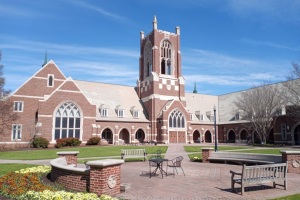More Than 1 in 4 Christians Are Pentecostal, Charismatic
The Pew Research Center's Forum on Religion & Public Life published a demographic report this week on the size and distribution of the world's Christian population and revealed that Pentecostals and charismatics make up more than a quarter of all Christians.
Using estimates from the Center for the Study of Global Christianity at Gordon-Conwell Theological Seminary, the report also showed that together Pentecostals and charismatics make up more than 8 percent of the world’s total population.
The study defines Pentecostals as members of Pentecostal denominations that teach that all Christians should seek a post-conversion religious experience called the baptism of the Holy Spirit. These denominations also teach that those who experience the baptism of the Holy Spirit may receive spiritual gifts, including prophesy or speaking in tongues.
Charismatics are members of Catholic, Orthodox and some Protestant denominations, who engage in some spiritual practices associated with Pentecostalism.
Both groups can be characterized as placing emphasis on the Holy Spirit. Greg Mundis, executive director of Assemblies of God World Missions, told The Christian Post, “The biggest thing for us in our exegesis of Scripture is that we believe in baptism in the Holy Spirit … Our understanding of the Scriptures is that upon salvation the Holy Spirit is sent to convict us.”
“Baptism in the Spirit empowers us to be His witnesses,” he explained.
This foundational belief has drawn a large following particularly in the Global South, including Latin American countries, Africa and India. The Pew report revealed that 44 percent of the world’s Pentecostals reside in sub-Saharan Africa.
Mundis noted that Brazil has experienced the most growth worldwide with 15 to 20 million Assemblies of God Pentecostal believers there. According to the Pew report, the Protestant population in Brazil grew from 2.6 percent in 1940 to about 21 percent today and the fastest-growing Protestant community is overwhelmingly Pentecostal. Additionally, more than half of Brazilian Catholics identify with the charismatic movement.
Pentecostalism has taken hold in many of these cultures, Mundis explained, because there has been an outpouring of the Gospel through mission work and because of the experience-based emphasis of Pentecostalism. Societies that are more oriented to emotional experiences, like in Latin American cultures, take a bigger interest in the religion.
On a similar note, David Roozen of the Hartford Institute for Religion Research said, “If someone is going to be religious in today’s world, it (Pentecostalism) has a lot more pizzazz than sitting around reading an old book. With Pentecostalism [you] can call on the spirit; there is an element of control.”
Roozen pointed out that many of the followers can be found among the marginalized.
Marginalized groups, he said, feel a draw toward a religion that gives them direct access to the Holy Spirit, thus giving the powerless power, in a sense.
Pentecostalism has grown in Latin American countries because many women are marginalized in those cultures, he noted. But as they bring their families to church, it starts creating order and discipline to their families’ lives and it gives women value in a culture where they don’t have much power.
According to Roozen, the movement is also very counter-cultural in Latin American countries, where Catholicism is the dominant religion. It gives marginalized people, either socio-economically or politically, ways to be a part of the modern world.
Many also see it as “God is actively here, we can touch Him, and feel Him, and see Him at work with healing and speaking of tongues,” Roozen added. This notion sits well with many in countries where there is no middle class. The very poor in these cultures have very little access to anything personally that makes them feel powerful.
Interestingly, in the United States, the Hartford director pointed out that the Pentecostal and charismatic movement is spreading among middle class Americans – a phenomenon that has puzzled many academics.
What’s attracting many in the middle class, Roozen observed, is the “prosperity gospel” – the teaching that essentially God will bless you with health and wealth – that preachers like Joel Osteen are spreading. This teaching is not affirmed by all in the Pentecostal movement.
The Pew report found that overall, the number of Christians around the world has more than tripled from historical estimates of approximately 600 million in 1910, to more than two billion today. Estimates for the number of Pentecostals worldwide are based on membership data from historically Pentecostal denominations, such as the Assemblies of God and the Church of God in Christ





























